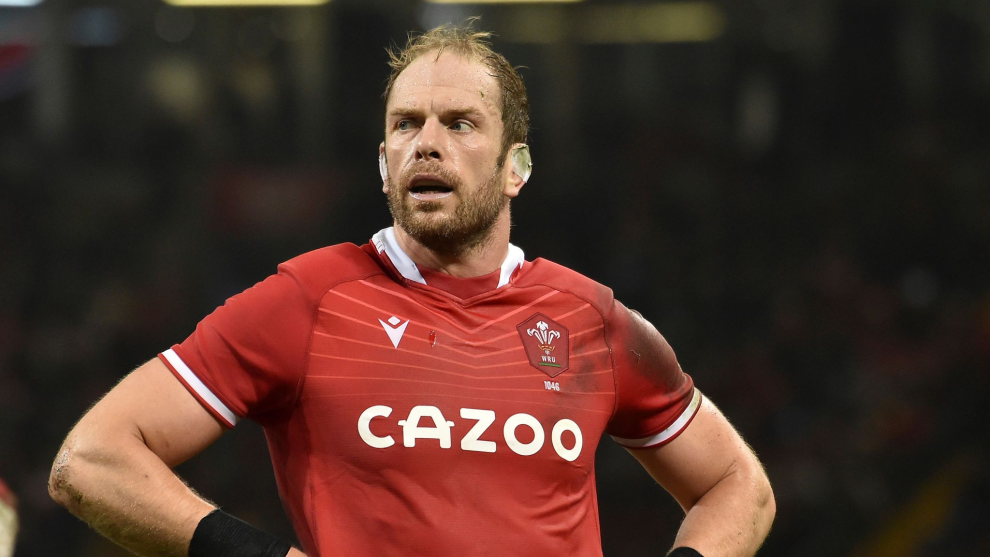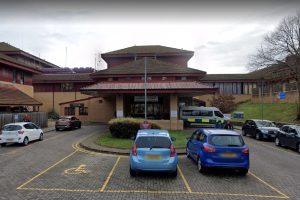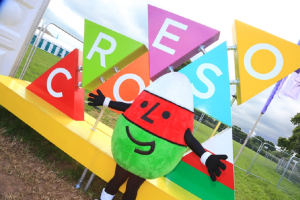Few moments capture the spirit of modern Wales quite like this: Alun Wyn Jones, the nation’s most capped rugby titan, stepping confidently into a new role—not as captain, but as learner, father, and cultural ambassador.
At this year’s Urdd Eisteddfod, against the scenic backdrop of Margam Castle, Jones gave his first-ever interview in Welsh—a quietly powerful gesture that spoke volumes. Joined by S4C’s Alun Williams, the sporting icon revealed both humility and pride as he navigated the conversation in a language he’s only recently begun to master.
Introduced to viewers as “the legend,” Jones met the camera with a rare hint of nerves, simply responding, “Rwy’n iawn”—“I’m well.” It was a brief moment, but for many watching, a deeply significant one.
Jones was at the festival supporting his daughter, a competitor this year, and embracing what he cheerfully calls his new title: “Eisteddfod Dad.” “Yes, an ‘Eisteddfod Dad’—and coffee helps,” he quipped in Welsh, earning a smile from Williams.
Beyond the light humour, his words carried the weight of sincerity. “People are enjoying,” he said when asked about the event’s atmosphere. “I’ve just started speaking Welsh. It’s nice to be able to use the language with people like you,” he added, gesturing warmly to his interviewer.
That effort didn’t go unnoticed. When praised for his progress, Jones responded with typical modesty: “A little bit, a little bit. I try and practice, practice, practice. Confidence comes with it—fingers crossed.”
His motivation for learning Welsh, however, is no casual whim. “I’ve played rugby around the world but I didn’t speak Welsh,” he explained. “Now I travel and bring the language with me.” It’s a message that resonates deeply in a country reclaiming and revitalising its language on every front.
At home, Jones admits, he’s outnumbered. His wife and daughter are both fluent Welsh speakers. “I am the minority in our house!” he laughed—though it’s clear he’s working to change that.
The Urdd Eisteddfod, one of Europe’s largest youth festivals, is more than just a celebration of song and poetry—it’s a vibrant showcase of Welsh identity in all its modern forms. This year marks a return to Margam for the first time since 2003, and thousands of young people have come to compete, perform, and connect through language and culture.
For Jones, the inclusion of sport is essential. “It’s so important to promote the sport here alongside the musical competitions,” he said. “It’s a fantastic opportunity for children to play, to express themselves—and to do it all in Welsh.”
As the interview drew to a close, a playful exchange offered a final moment of charm. Williams joked about often being mistaken for “Alan” when speaking to non-Welsh speakers. His response? “You know Alun Wyn Jones, Welsh rugby captain? Same name.”
Jones grinned. “Probably better at rugby as well!”
The light-hearted finish followed more poignant reflections made earlier this year, when Jones spoke on the High Performance podcast about his late father, who passed away in 2016. “I hope he’s proud,” he said. “I’ll never forget him. The kids know all about who he was, and what he did. I would happily be remembered as the son of my father.”
From the stadium to the stage of Welsh language and culture, Alun Wyn Jones continues to lead—this time, with quiet resolve and heartfelt intention. For those still wondering about the relevance of rugby in the cultural life of Wales, here was the answer: it speaks Welsh.














